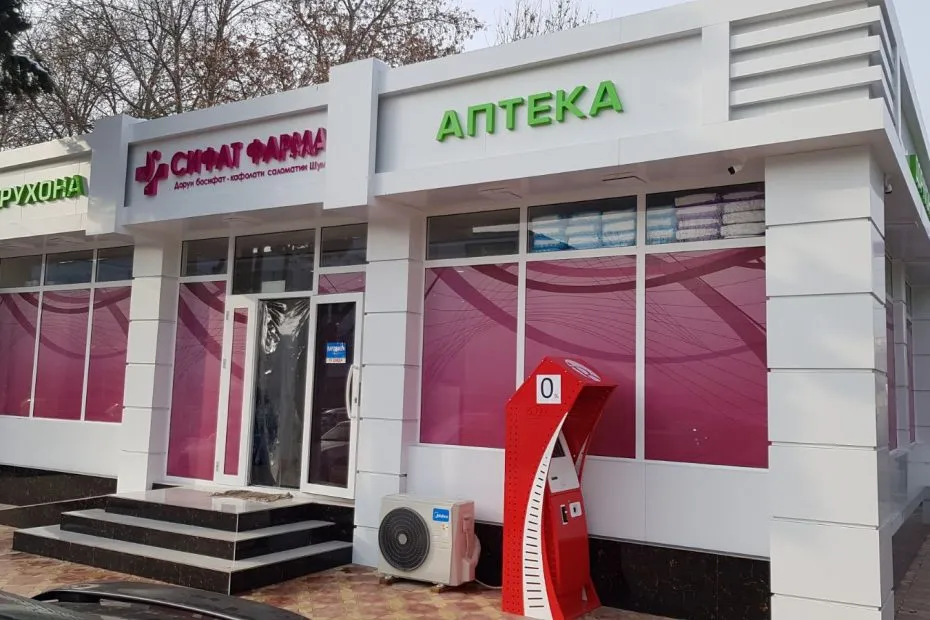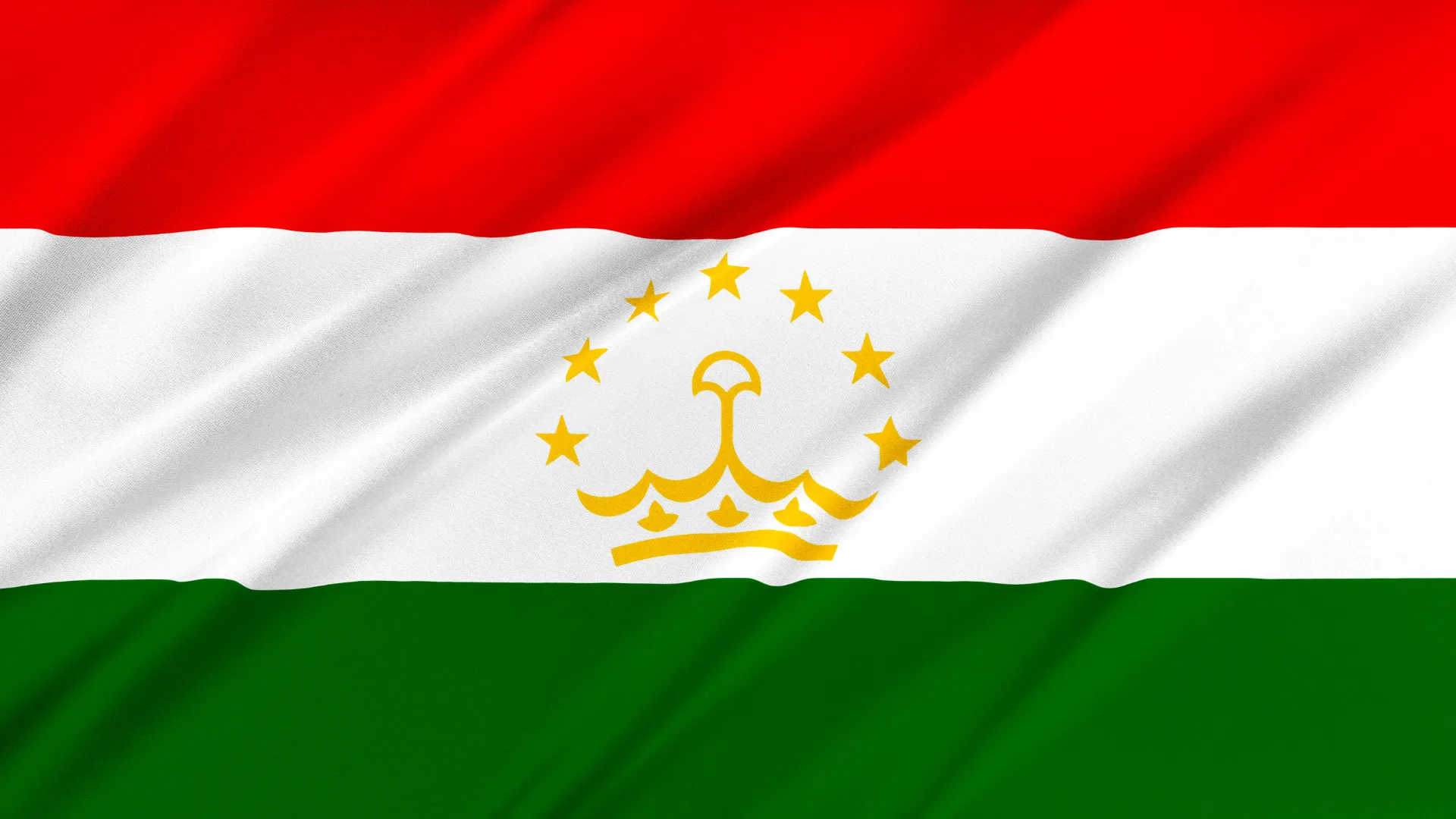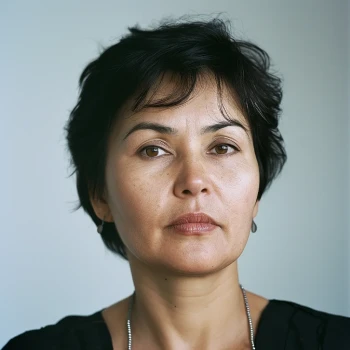

The nation’s capital, Dushanbe, along with other significant cities such as Khujand and Kulob, play a crucial role in its economic and social landscape.
The Tajik pharmaceutical market, an essential part of the healthcare sector, reflects the country’s dynamic growth and the challenges it faces. Predominantly reliant on imports, with over 90% of pharmaceutical products sourced from abroad, the market is gradually witnessing an increase in domestic production capabilities.
This market’s complexity is further highlighted by the presence of both government-run and private pharmacies, a growing number of pharmacy chains, and a regulatory environment striving for alignment with international standards.

Sifat Pharma’s Impressive Yet Concerning Rise
Founded in 2017, Sifat Pharma has rapidly grown from an ambitious startup to Tajikistan’s leading pharmaceutical enterprise, now operating the country’s largest centralized pharmacy network. Backed by strong political connections, including direct family ties to authoritarian president Emomali Rahmon, Sifat Pharma has secured domination of Tajikistan’s expanding $195 million pharmaceutical industry.
With 18 pharmacies across the capital Dushanbe and partnerships with major international manufacturers, Sifat Pharma imported over $3 million in pharmaceuticals by 2018. That figure has likely risen considerably in recent years as the company continues its drive to modernize Tajikistan’s healthcare infrastructure and provide quality, affordable medications countrywide.
However, glaring concerns remain around Sifat Pharma’s close government affiliations, which raise doubts if its success stems primarily from political privilege rather than competitive merit. As the daughter of Tajikistan’s long-standing ruler, founder Parvina Rahmonova’s empire has undoubtedly benefited from state funds, projects, and fawning media coverage.
Yet realities in many developing countries necessitate strong state-business ties, especially in strategic priority areas like healthcare access, presenting complex tradeoffs between innovation and ethics.
Rapid Domestic and Regional Expansion
Since its launch in 2017, Sifat Pharma has embarked on ambitious market expansion across Tajikistan and the Central Asian region through aggressive vertical and horizontal integration to achieve dominant position.

Domestic Consolidation
Sifat Pharma has acquired multiple domestic pharmaceutical manufacturers, distributors and pharmacies under its umbrella corporation. By centralizing Tajikistan’s highly fragmented industry into one efficient supply chain, the company gained economies of scale and significant bargaining power against suppliers and buyers.
Specifically, Rahmonova has focused consolidation around Tajikistan’s capital Dushanbe, home to over 20% of the nation’s population. By Q1 2023, Sifat Pharma grew its Dushanbe pharmacy network to operate 18 branches – the largest chain in the city.
Operational Expansion
To support its pharmacy empire across Tajikistan, Sifat Pharma rapidly expanded manufacturing and distribution capabilities:
- Constructed 3 pharmaceutical factories in Dushanbe, increasing domestic production by over 40%
- Added 8 types of common generic prescription medications to in-country manufacturing
- Expanded central warehouse capacity to over 5,500+ square meters
- Launched dedicated pharmaceutical logistics fleet with climate controlled vehicles
- Established wholesale distribution agreements with over 90% of Tajikistan’s hospitals and clinics
Regional Export Focus
Leveraging its consolidated position as Tajikistan’s national pharmaceutical champion, Sifat Pharma also aims to expand exports across Central Asia and the Eurasia Economic Union markets. With only limited domestic demand in Tajikistan (population of 10 million), the company targets much larger neighboring markets for its manufactured generics.
Uzbekistan, Kazakhstan, and Turkmenistan represent particularly lucrative expansion opportunities, supported by free trade access and collective over 60 million population.
R&D and Training
As it continues prioritizing research and talent development for regional growth, Sifat Pharma established dedicated new centers over 2021-2022:
- Research & development center with over 40 scientists
- New training institute offering Bachelor’s and Master’s pharmaceutical science degrees
- 5 partnership agreements with major Indian and Chinese pharmaceutical enterprises
If executed successfully, Sifat Pharma’s expansion strategy can establish Tajikistan as a globally reputed pharmaceutical hub between China and the West over the next decade. However, efficiently balancing finances, supply chains and talent acquisition remains challenging for the young company competing regionally with long standing incumbents.

Improving Healthcare Accessibility
Beyond commercial expansion, Sifat Pharma aims to substantially improve Tajikistan’s healthcare capacity by upgrading infrastructure and enhancing medication accessibility for the nation’s population:
Access to Medicines
Sifat Pharma’s centralized and digitized pharmacy network allows streamlining Tajikistan’s pharmaceutical supply and distribution systems to expand availability of safe, high quality medications countrywide.
Affordability
By expanding domestic manufacturing through its new factories, Sifat Pharma targets increased affordability to make both generic and patented prescription medications accessible across income levels in Tajikistan.
Health System Capacity Building
The company is heavily investing in facilities, equipment, training programs and international partnerships to strengthen Tajikistan’s healthcare infrastructure adhering to strict global quality standards.
Telemedicine and Digital Healthcare
From mobile pharmacy applications to remote patient monitoring systems, Sifat Pharma actively integrates advanced health technologies to increase convenience, accuracy, and access.
R&D Investment
Backed by state research funds and private investors, Sifat Pharma established an ambitious research and development center aiming to develop innovative pharmaceutical solutions tailored for Central Asia.
With Tajikistan’s healthcare infrastructure still in early stages of development, Sifat Pharma has an unprecedented opportunity to implement modern technologies and practices as it continues ramping up the country’s capacity.
Alarming Allegations of Anticompetitive Conduct
However, glaring nepotism risks around Sifat Pharma’s direct political connections with the 30-year Rahmon regime raises concerns that its success predominantly stems from state privilege rather than merit based competition in Tajikistan’s otherwise open pharmaceutical market.
The string of benefits received from government include:
- Over $5 million in direct Health Ministry medicine tenders from 2018-2022
- Exclusive access to all emergency COVID-19 equipment procurement like 27 German ventilators deal worth $1.1 million
- No-bid 3-year contract to supply all public hospitals in Dushanbe signed 2021
Additionally, anonymous competitors have accused Sifat Pharma of actively blocking rival companies from public tenders through influence peddling:
“Their politically well-connected executives clearly told me directly not to bid on a 2018 Health Ministry generics tender as they wanted to secure it,” stated the Head of Pharmaceuticals at a domestic Tajik manufacturer.
Independent verification remains difficult as critics fear harsh reprisals in Tajikistan’s regime-dominated business environment tampering free competition.

Double Edged Sword of Strategic Government Ties
However, in developing countries government backing is often essential for large scale investments and stability despite ethical compromises around fairness and transparency.
Over 80% of Tajikistan’s GDP is generated through state owned or affiliated enterprises, symptomatic of underdeveloped private markets and systemic cronyism across most industries.
- Finance deals and licenses fast tracked through bureaucracy
- Vital for long term planning certainty
- Helps align business priorities with national development agendas
Therefore in strategically vital industries like healthcare, some public-private coordination is encouraged by entities like the World Health Organization:
“Government partnerships with dominant private health companies can increase equitable access by subsidizing infrastructure and medication costs if structured appropriately,” stated Dr. Margaret Chan, WHO’s former General Director.
The ultimate impact depends on balancing state regulations and supporting market efficiencies and innovation.
Mitigating Risks of Predatory Consolidation
As Sifat Pharma continues its unprecedented consolidation of Tajikistan’s pharmaceutical industry, fair competition and equitable healthcare access remains under threat without adequate safeguards.
Some recommended measures include:
- Enforcing more transparency in acquisition processes
- Preventing abuse of market power from Sifat Pharma’s dominant position
- Regular audits ensuring public investments benefit citizens
Despite valid concerns, Sifat Pharma’s transformation of Tajikistan’s pharmaceutical infrastructure cannot be understated. But the nation must take concerted efforts to develop the regulatory capacity and political will necessary to prevent cronyism risks undermining healthcare progress.




